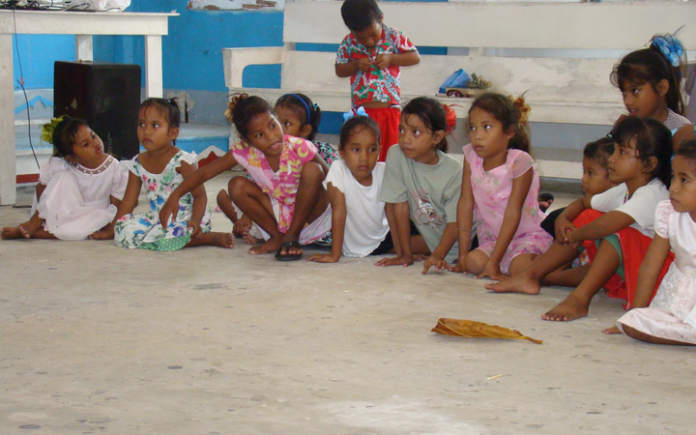A high-rate of malnutrition and growth stunting among Marshall Islands children has been a concern for many years.
A survey jointly conducted by UNICEF and the Marshall Islands Ministry of Health and Human Services in 2017 documented serious malnutrition and growth stunting in over 30 percent of children from early months after birth to five years of age.
But the malnutrition problem, particularly in the urban centres, has been documented since the late 1980s, in part due to Marshallese moving away from eating local foods and following customary norms to adopting western imported foods for their diet.
For the first time, the government is rolling out a major intervention in an attempt to help parents improve the health of their young children. Five years in the making, the Early Childhood Education or ECD programme is ramping up for its launch this month, with a pilot cash transfer program for mothers to follow later in the year.
The ECD programme is one of the largest World Bank-funded initiatives in the Marshall Islands, with US$30 million approved for the five-year programme. It is being jointly run by the Ministries of Health, Education and Internal Affairs, with the Chief Secretary’s office also a key player.
A key part of the programme is a US$9 million programme that will provide ECD debit cards to mothers of young children in the zero to five age bracket with the hope of encouraging better nutrition, improved child stimulation, complete immunizations and clinic check ups, and other needs related to these children.
Pablo Stansbery, an ECD project manager, joined with ECD coordinator Fred “Kano” Muller, ECD National Advisor Molly Helkena, data manager Sage deBrum and others to brief the Chamber of Commerce last week as part of rolling out the program.
Stansbery said the aim is to pilot the ECD debit card programme with 100 mothers on Majuro and Ebeye in the first year and then continue to expand it with the goal of reaching as many as 4,000 mothers in the centers and outer islands over the five-year life of the programme. It will provide a relatively small amount of money to each mother — US$30 per month, with additional small amounts depending on the number of babies and children a mother has in the zero to five age group.
The logistics of the cash transfer programme have been worked out between the Ministry of Finance and Bank of Marshall Islands, where the women enrolled in the programme will need to establish bank accounts for the programme. Initially, it will target women who are identified as “vulnerable,” and later it will expand to universal coverage of mothers with young children, according to Muller and Stansbery.
Stansbery explained that they have spent many months going over the details of the cash transfer programme. “We’ve been trying to make it perfect,” he said. But it now needs to be rolled out to get it started. He acknowledged that the programme will likely make mistakes. But the important thing is to get it started, learn from the mistakes, and correct them, he said.
The cash transfer pilot project could begin as early as August this year. Muller said the aim is to see women with young children use the money for food, taxi fare, hospital fees, school supplies and other family needs.
But nutrition is only one aspect of the ECD intervention. Muller said the cash transfer program is being integrated into a broader programme of working with mothers to improve not only nutrition but education and stimulation for babies, toddlers and young children. Stansbery made the point that is now a medically documented fact that lack of nutrition and mental stimulation negatively effects brain development.
Stansbery also noted that three public schools in Majuro are now offering pre-school programmes, while two are expected to open on Ebeye soon as part of the ramped up focus on early children education and wellness.
An ECD Forum is scheduled for the ICC May 10 and 11 to officially roll out the programme, although it has already been several years in the making.
The programme was initially conceived during President Hilda Heine’s term in office in 2017 when she sought World Bank partnership to focus on malnutrition and education needs of young children in the Marshall Islands.
SOURCE: MARIANAS VARIETY/PACNEWS














